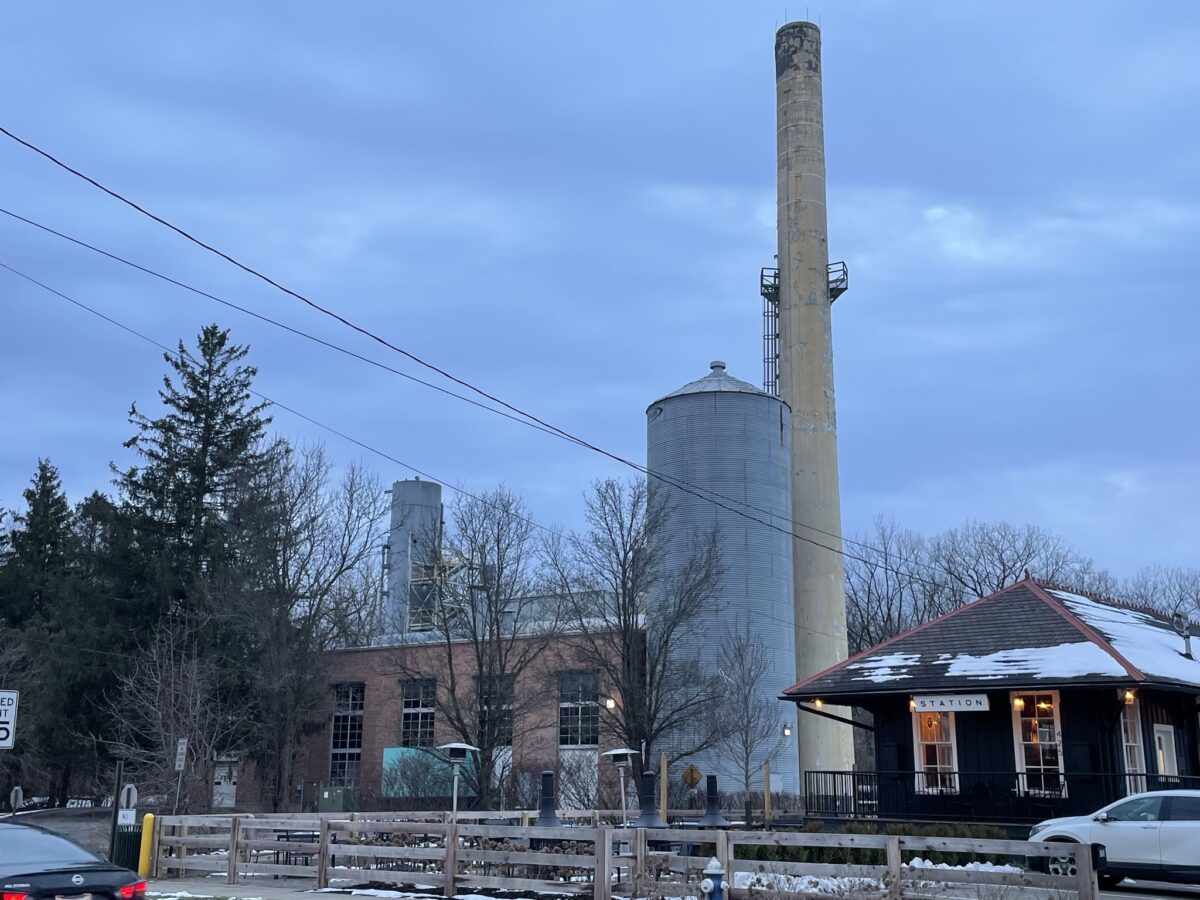Denison University has plans to build up to 60 units of faculty housing near Granville High School and is looking for a new use for its old steam plant that is a prominent part of the village landscape on South Main Street near Station café.
The two initiatives are among a series of construction projects that are planned, underway or recently completed by the university.
The faculty housing would be built on what is now a 31-acre hay field, owned by the university and located west of Chapin Place and south of New Burg Street, just southwest of Granville High School, said Jake Preston, Denison Director of Physical Plant & Capital Projects.
University President Adam Weinberg has said that as prices and the demand for housing continue to rise, it is increasingly challenging for new faculty members to find housing in Granville. The construction of about 60 units, to be built in phases over several years, would help meet the need for faculty housing, Preston said.
He said university officials met recently with residents of Chapin Place to discuss plans for the property next door to them. Those plans include going to the Granville Village Council in the near future to request annexation of the land currently in Granville Township into the village.
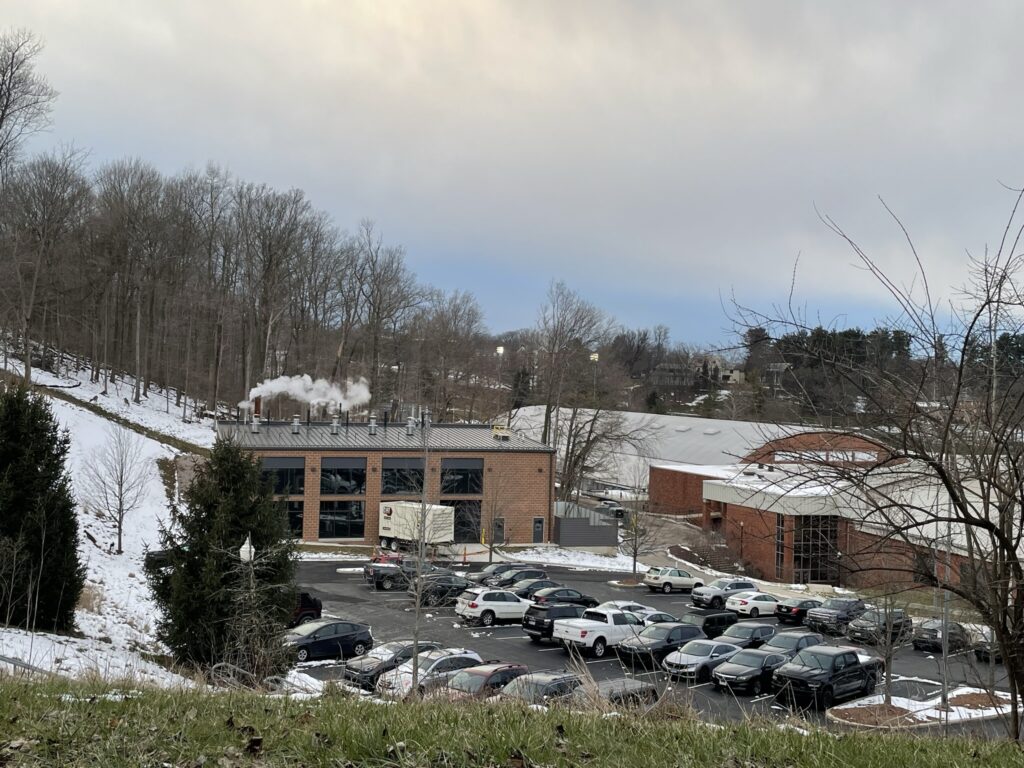
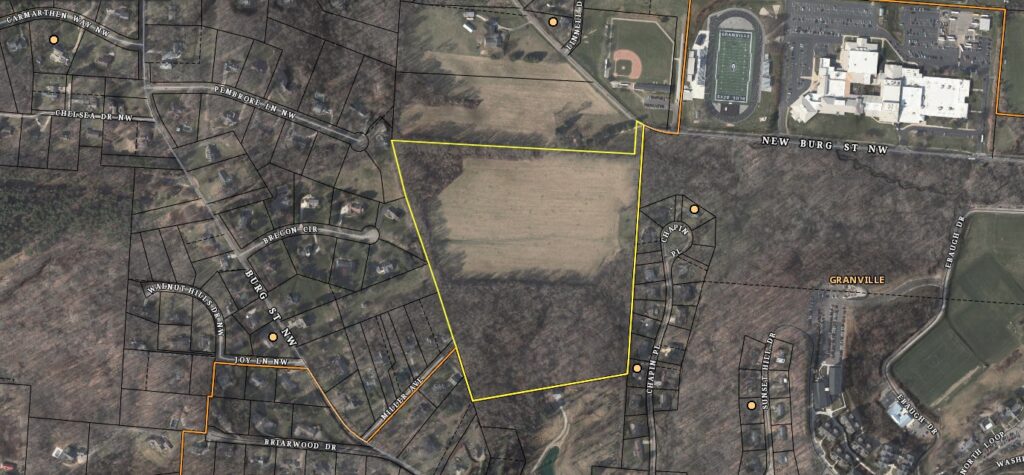
Preston said he expects that architects will design a variety of housing options, from one-bedroom units to those with two or three bedrooms for families.
“We have a spring to summer goal to start the project,” Preston said. “We’ll go through the legal process for annexation and position ourselves to start soon after that. There will be a series of public meetings with that.”
Across town to the south, some folks in Granville have wondered what will happen to the university’s old steam plant on South Main Street, across the bike path from Station café, after the university built a new steam heating plant next to Mitchell Recreation and Athletics Center last year. The answer could come soon, and, one way or another, the nearly century-old industrial building could be hot again.
Weinberg said during his State of the College address in January that Denison officials are talking with consultants about possible uses for the structure. The property includes not only the multi-story steam-generating plant and smokestack visible from South Main Street, but also a warehouse building to the west.
In an age when old industrial sites are being converted to restaurants, hotels, offices and lofts, there are many possibilities.
“We want to do something to enhance and benefit the community of Granville,” Weinberg said, adding that Denison leaders are open to ideas and suggestions from anyone.
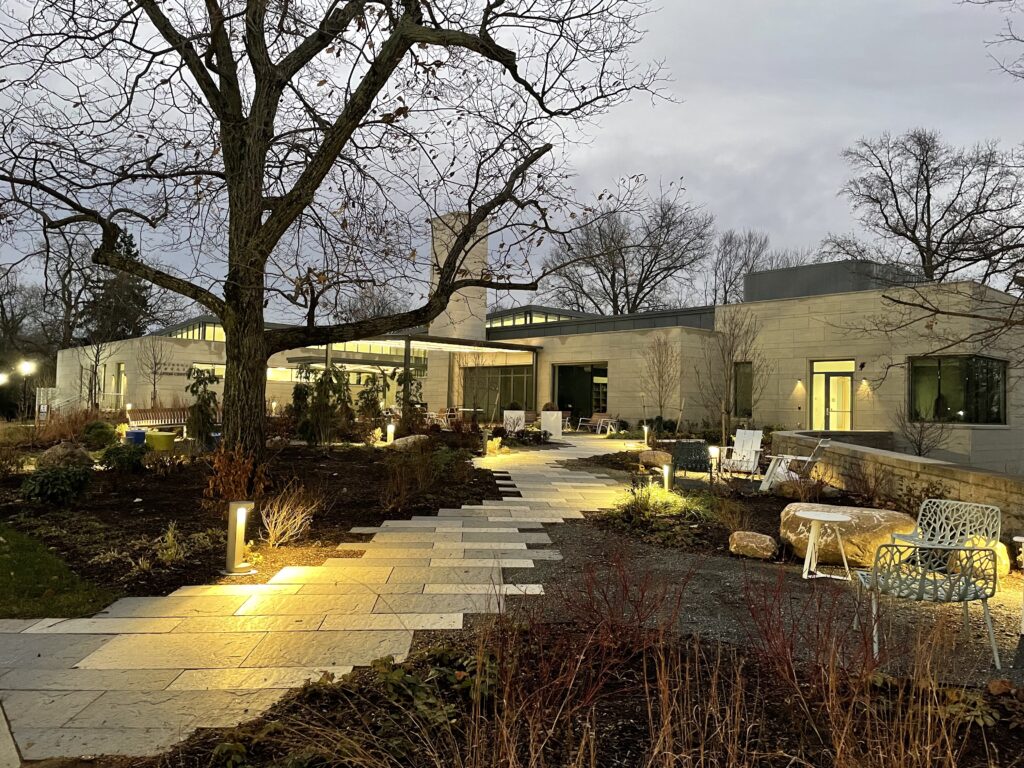
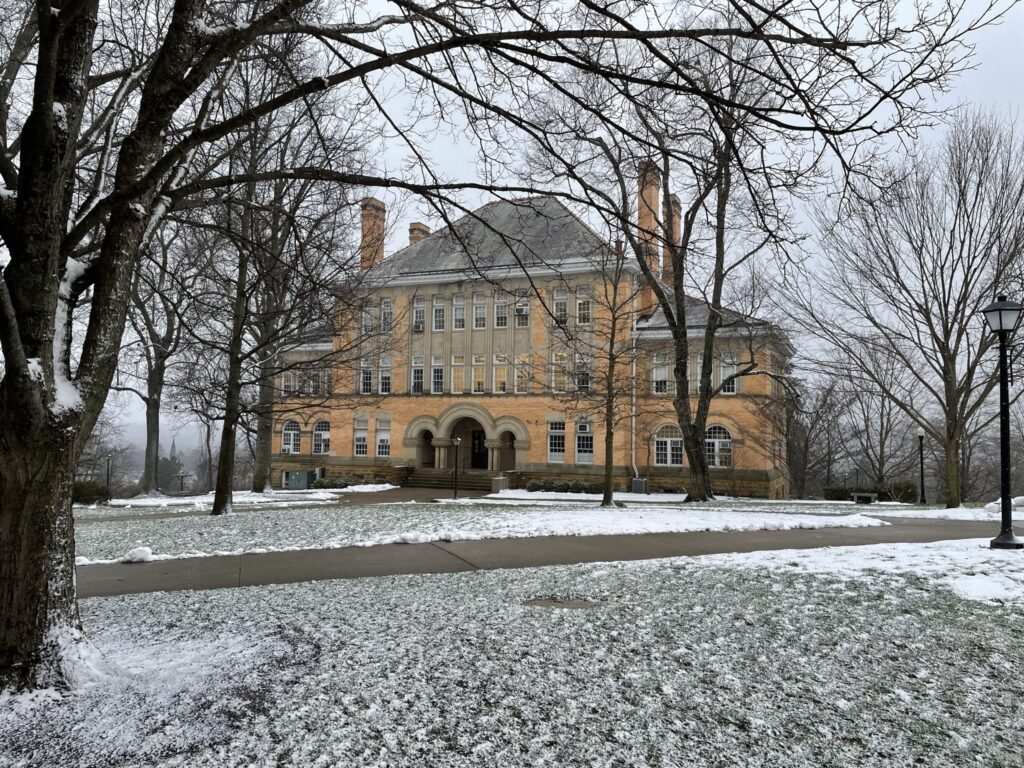
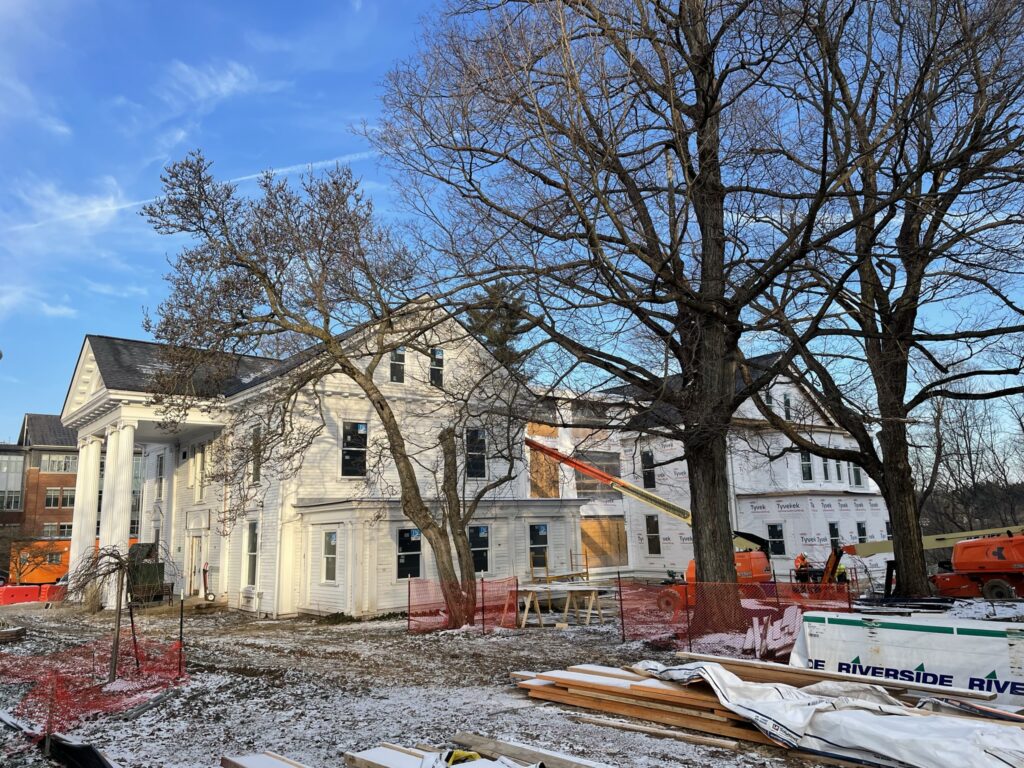
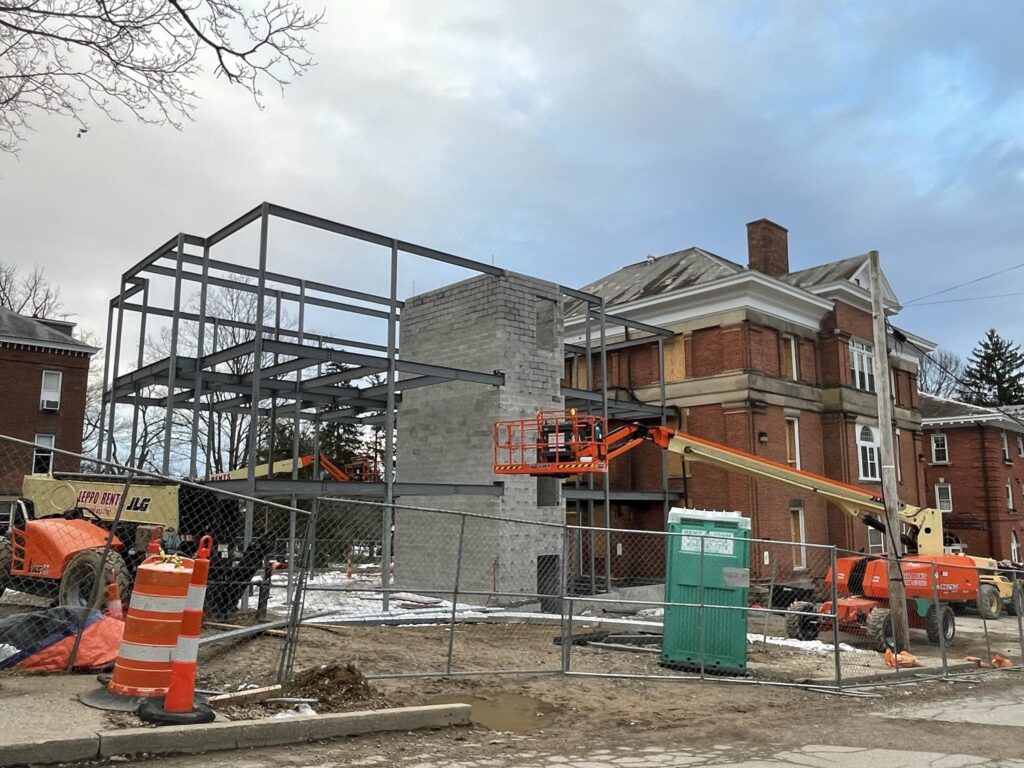
Denison has been busy in recent years with renovation and construction. Additions and renovation projects range from student housing to a wellness center, as well as a new facility dedicated to the arts.
On the west side of Denison’s South Quad, the university is in the process of renovating and adding rooms to King Hall, a dormitory on N. Plum Street just north of West Broadway that dates to 1891. The work will create an additional 40 beds for students.
Also on the South Quad, Doane Dance Hall will be renovated soon to create production space for the Cinema Department. That building was built as a gymnasium in 1905 and was renovated in 1975 for the Dance Department, which moved nearby to the Michael D. Eisner Center for the Performing Arts, built in 2019 on West Broadway.
At the heart of the campus, on the Academic Quad, Beth Eden, which was built in 1903 as the president’s home, is being renovated and expanded. The landmark house has nearly doubled in size and will become offices for the university president, provost, registrar and vice president for finance and management. When the Beth Eden project is completed in the spring, all of those offices will move from Doane Administration building, which will then be renovated for classrooms and a home for Computer Science and Data Analytics, Preston said.
The offices for Human Resources, Student Accounts and the Copy Center and Mail Room also will move out of Doane Administration building and into Whisler Hall, the former student health center. Whisler, which was built in 1929 in memory of a student who died of tuberculosis during her sophomore year, is under renovation now.
Health services moved a short distance from Whisler to the new Ann and Thomas Hoaglin Wellness Center, which opened in August.
The university also continues to work on student housing, having built the newest dormitory, Silverstein Hall, on West Quad in 2020.
Preston said the university is renovating virtually all existing dormitories, following a plan that began in 2016.
“We’re about 80 percent through that plan,” Preston said. “King Hall will be ready for fall. … Sawyer and Beaver (halls on East Quad) are two big projects yet to come. We’re probably a couple of years out on those.”
All of this follows Denison’s purchase of the Granville Inn in 2013 and a $9 million renovation and expansion of that village landmark in 2015. The university also owns the Granville Golf Course, which was a gift to Denison in 2014. The inn and golf course were developed in 1925 by John S. Jones, who owned the nearby Bryn Du Mansion at the time, and were under the same ownership for all but a decade prior to Denison reuniting them.
The new steam plant on campus was probably the least visible and least celebrated of the many projects on campus in recent years, but it is literally felt by everyone on campus – especially this time of year.

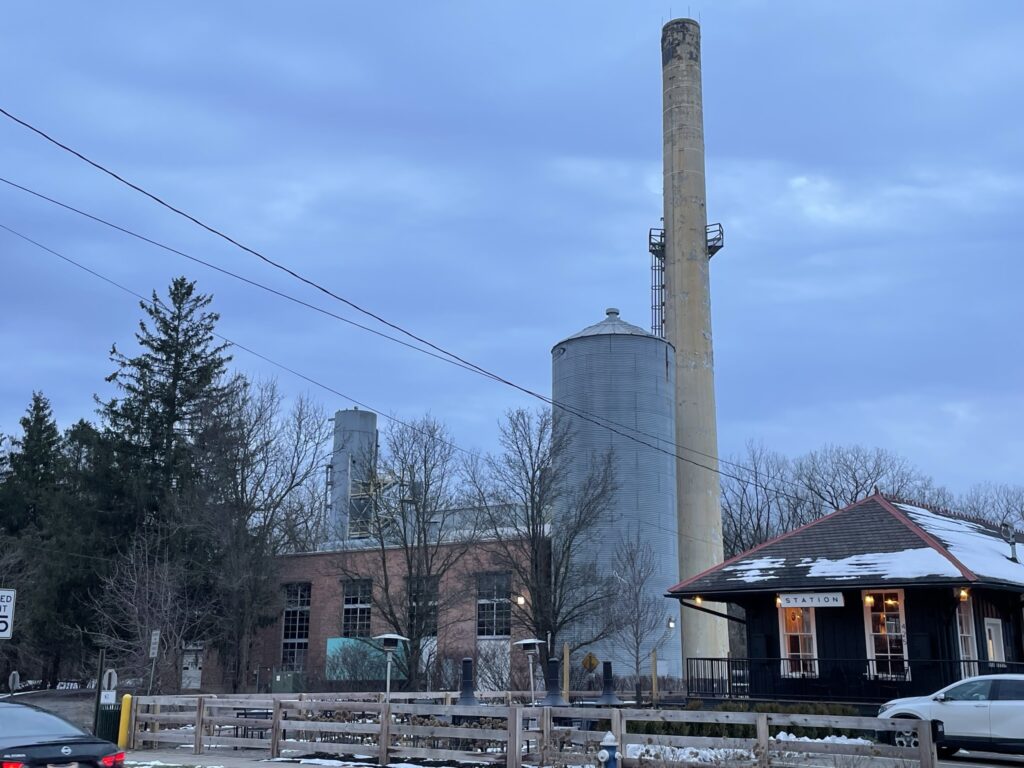
About 80 percent of the buildings depend on steam for heat and hot water. The new plant was part of a multi-step plan for Denison to achieve carbon neutrality by 2030. That plan was developed in 2010 when then-president Dale T. Knobel signed the American College and University Presidents’ Climate Commitment, according to university archives.
The addition of a steam plant on campus also was much needed, given the condition of the old coal plant, which had been converted to natural gas. The plant, nearly a mile away from some parts of campus, was inefficient.
The plant was built in 1930 when coal was cheap and delivered to Granville by train on the railroad tracks that once occupied what is now the bike path through Granville. Building the plant along the railroad tracks made sense then.
In 2014, three natural gas-powered boilers were installed. According to school archives’ the decision came after the federal government increased emission regulations to reduce pollution and because of the university’s carbon neutrality goal.
Having the plant a mile from campus also was a concern. Pipes that ran under village streets from the plant to campus sometimes leaked, causing road closings and costly repairs. And because the plant is located near Racoon Creek, flooding was a risk. After a storm in 2020, for example, the steam plant was inches away from flooded boilers.
“This wasn’t a sustainability project; it was a risk management project,” Preston said.
One important benefit of the new plant, according to Michael Seifert, Denison’s Manager for Building Systems & Energy, is the fact that everything is controlled by computers.
“At the old heat plant, we had to have staff there 24 hours a day, seven days a week, because it was more of a manual thing,” Seifert said. “So as part of our requirements from the state of Ohio, to operate those boilers, the size they were, we had to have somebody on site 24 hours a day. … It wasn’t optional.”
Drew Mascioli, Manager of Capital Construction & Planning, said that Denison is keeping the old steam plant on standby for this heating season as the staff fully integrates the new plant. They could still fire it up and use it if something would go wrong with the new plant.
Come warm weather, however, the old plant will be taken offline and a new purpose will be found.
“It’s kind of a neat place in town; it’s a gateway property to Granville. People don’t realize it, but it’s the first Denison thing you pass when you come off the highway. So, I think there’s tons of opportunity there,” Mascioli said.
John Mendez and Alan Miller write for TheReportingProject.org, the nonprofit news organization of Denison University’s Journalism Program, which is funded in part by the Mellon Foundation.

